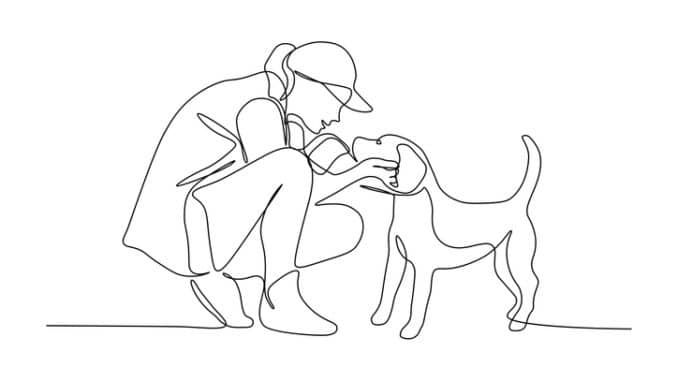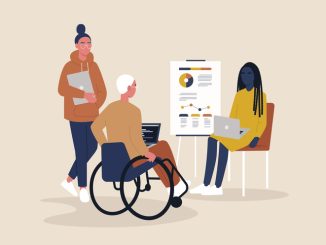
From pooches to parakeets, koi to cats, our animals can have a profound effect on our mental wellbeing. But why is this?
CREDIT: This is an edited version of an article that originally appeared on Happiful
They’re in our homes, our hearts, and our passwords – and it really goes without saying that pets play a huge role in enriching our lives. In the UK, 12m (44% of) households own pets, with an estimated 51m pets owned in total. Cats and dogs top the charts as the most popular companions – no surprises there – but beloved pets come in all shapes and sizes, sharing our lives, and staying by our side, through all the highs and lows.
In their 2019 review animal charity the Blue Cross highlighted seven areas of wellbeing that pets can support; love and company, motivation and purpose, trust, a distraction from symptoms, increased social interaction and exercise; and humour. In a survey, it also found that 43% of respondents felt that their pets were crucial in keeping their ‘mental health in check’.
But precisely what is it about pets that is so beneficial for our wellbeing? With help from an expert, and those who have their own stories to tell, we dive in to the core of these relationships.
The joy of play
Research has consistently found links between time spent with animals and a decrease in stress, anxiety and even blood pressure. They act as companions – warding off both isolation and loneliness; they help establish a routine, get us out of the house, provide responsibility and are something to nurture and love. But, as Kathryn Kimbley – a counsellor specialising in animal-assisted therapy – sees it, one of the most important things when considering the mental health benefits is our pets’ ability to help us rediscover the joy of play.
“If we are depressed, anxious, stressed, or worse, then it’s nigh on impossible to play – it goes against every instinct,” Kathryn explains. “If we are able to ‘switch off’ and play, this means that our brains are not in that state of heightened arousal.
“We know that when we interact with animals certain good hormones are released. We also know that other, more negative, effects of stress hormones – such as cortisol – can also be reduced through interaction with animals.”
Did you have a pet as a child? Can you conjure up memories of playtime together? Or perhaps you didn’t have a pet back then, but you can remember the thrill of adventures and play? Nurturing our inner child can be hugely supportive, and the silliness of animals is bound to bring those old habits back to the surface. If you ever need more evidence of this link, and there isn’t a friendly animal to hand, Kathryn recommends heading to social media. “Evidence of the positive impact of the human-animal bond is all the more so now, thanks to social media,” she says.
“Cute cat videos fill platforms like YouTube, Instagram and TikTok, and we have to ask ourselves why it makes us feel good? Whether we’re watching wild animals playing, or dogs goofing in the snow, in many ways such footage has been the saving grace for lots of us during lockdown and the global pandemic.”
While there’s no true replacement for the real thing, animal videos aren’t to be snubbed; a study from the University of Leeds found that participant’s stress levels were significantly reduced after watching half an hour of animal videos.
All creatures great and small
Off the screen, it’s true that help comes in many forms, as Jade Hopkins found out when she adopted a baby tortoise called Dell at the beginning of lockdown in 2020. “Just like many other families, lockdown hit us pretty hard,” Jade says. “Having a tortoise join our family, just when we were all starting to struggle, has really helped us.”
With her family, Jade researched safe and healthy foods for Dell to eat, and together they ventured outside on long walks, to forage for suitable weeds and flowers. “Dell really has improved our mental health, and not just by being a little cutie!” she adds.
On the other side of the spectrum, Amanda Gaughran found a huge amount of comfort in her Blue Cross rescue horse Jasmine, following the death of her daughter, Genna. Amanda’s mental health was deteriorating, which led her to spend some time in hospital while she recovered. “Caring for Jasmine gave me a purpose,” Amanda says. “We rescued each other in our times of need. I think she was sent to help me. It proves what great healers horses can be.”
Through our most trying times, animals are non-judgemental companions, loving us unconditionally, helping us to reclaim structure, and challenging us in new ways. And while Amanda and Jade’s pets may look very different, their emotional impact is felt just the same.


Be the first to comment